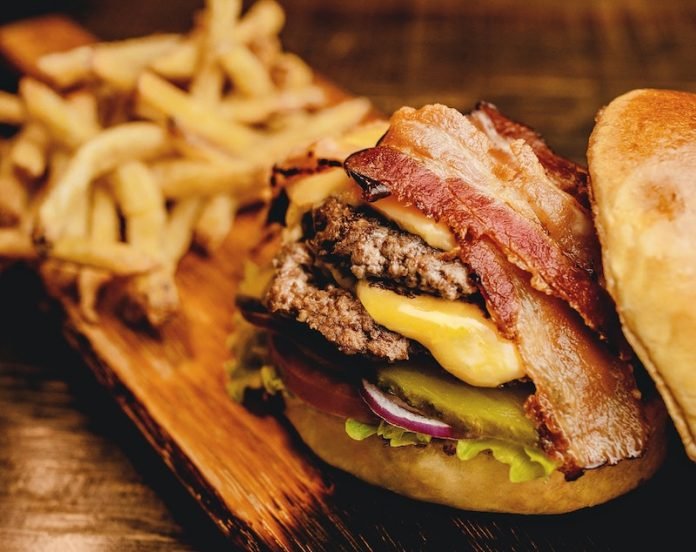
Fatty food may feel like a friend during these troubled times.
but In a new study, researchers found that eating just one meal high in saturated fat can hinder our ability to concentrate.
This is not great news for people whose diets have gone south while they’re working at home during the COVID-19 pandemic.
The research was conducted by a team at Ohio State University.
The study compared how 51 women performed on a test of their attention after they ate either a meal high in saturated fat or the same meal made with sunflower oil, which is high in unsaturated fat.
The high-fat meal followed: eggs, biscuits, turkey sausage and gravy containing 60 grams of fat, either a palmitic acid-based oil high in saturated fat or the lower-saturated-fat sunflower oil.
Both meals totaled 930 calories and were designed to mimic the contents of various fast-food meals such as a Burger King double whopper with cheese or a McDonald’s Big Mac and medium fries.
Their performance on the test was worse after eating the high-saturated-fat meal than after they ate the meal containing a healthier fat, signaling a link between that fatty food and the brain.
The researchers were also looking at whether a condition called leaky gut, which allows intestinal bacteria to enter the bloodstream, had any effect on concentration.
Participants with leakier guts performed worse on the attention test no matter which meal they had eaten.
The loss of focus after a single meal was eye-opening for the researchers.
The team also noted that the meal made with sunflower oil, while low in saturated fat, still contained a lot of dietary fat.
Because both meals were high-fat and potentially problematic, the high-saturated-fat meal’s cognitive effect could be even greater if it were compared to a lower-fat meal.
Though the study didn’t determine what was going on in the brain, the team suggests that food high in saturated fat can drive up inflammation throughout the body, and possibly the brain. Fatty acids also can cross the blood-brain barrier.
The lead author of the study is Annelise Madison, a graduate student in clinical psychology.
The study is published in the American Journal of Clinical Nutrition.
Copyright © 2020 Knowridge Science Report. All rights reserved.



